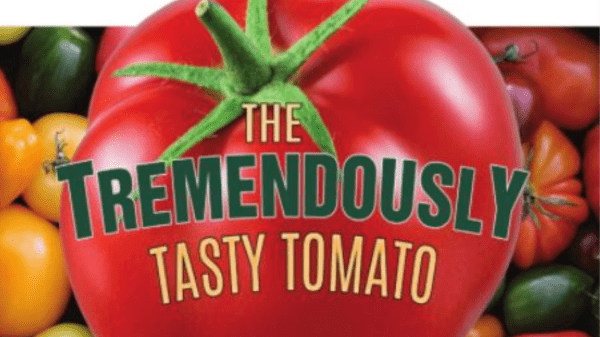When it comes to growing tomatoes, most believe technology will continue to play a leading role, due in large part to the chronic shortage of labor in the industry.
The president and CEO of Mastronardi Produce’s BB #:115453 based in Kingsville, ON, is on the same page.
“The future is going to be automation—there’s no question about it,” Paul Mastronardi told a virtual audience last July as part of a panel sponsored by Bayer AG on the future of farming.
Mastronardi believes automation will eventually bring down the costs of production and will also usher in many new jobs.
“It isn’t going to change overnight; we’re talking about a decade before we see a major shift in what’s happening,” he predicted. “But I believe technology is going to be the key not only on the seed side, but also on the harvesting and growing of the crops.”
Funding initiatives
The Ontario government is supporting greenhouse operators by investing millions in a number of wide-reaching innovative projects.
Among them is Autonomous Greenhouse Management, a collaboration between the Ontario Greenhouse Vegetable Growers and Blue Radix, an independent Dutch artificial intelligence technology firm.
Data models and algorithms control greenhouse installations 24/7, supported by offsite autonomous greenhouse management. Three greenhouses are participating in the AI-infused project.
Other projects, funded by Canadian federal rather than provincial dollars, were announced in the summer and fall. The Vineland Research and Innovation Centre, in Vineland, ON, will benefit from about C$4 million in federal money for four projects.
Of the projects, one revolves around breeding to boost yields for on-the-vine tomatoes with up to C$1.8 million in funding. The first of its kind in Canada, the program focuses on developing higher-yield on-the-vine varieties with improved flavor and production traits adapted to Canada’s climate.
The other related projects include new biocontrol solutions for greenhouse pest management and converting horticultural waste into value-added ingredients.
Sustainability and greener measures
The continuing effort to reduce carbon emissions and increase sustainability in U.S. agriculture is leading to an explosion in new technology.
In Appalachia, the future of farming is already here. With a greenhouse the size of 58 football fields, AppHarvest, an applied technology company in Morehead, KY, is growing tomatoes using cutting-edge technology, including artificial intelligence and robotic harvesting.
The company says its facility is “designed to grow non-GMO, chemical pesticide-free produce, using up to 90 percent less water than open-field agriculture and only recycled rainwater, while producing yields up to 30 times that of traditional agriculture on the same amount of land without agricultural runoff.”
Back in July, AppHarvest secured a $91 million construction loan to build another 60-acre high-tech indoor tomato farm in Richmond, KY, about 65 miles southeast of Morehead. A smaller third facility is being built in Somerset, KY, with the company planning to operate 12 farms by the end of 2025, growing not only tomatoes but other fruits and vegetables as well.
AppHarvest signed an agreement with Mastronardi Produce to form FarmCo, a joint venture to develop a portfolio of controlled-environment agriculture facilities to expand supply for Mastronardi’s fresh produce marketing and distribution.
FarmCo is planned to have its own leadership team, and calls for the partners to contribute equity and assets of over $100 million. Additional funding would need to be raised for growth, with a target of building over 750 acres of controlled environment growing operations in the United States to grow fresh fruits and vegetables.
On the negative side of news, AppHarvest did not meet financial or production projections for the second quarter, which prompted a class action lawsuit on behalf of investors. Better news was another round of financing in late September from JP Morgan for $25 million, with the grower citing its “late summer refresh” and lessons learned for better results with new plantings and upcoming harvests.
Another venture, Vertical farming company 80 Acres Farms was also in the news, after securing $160 million in funding for continued expansion and product development. Currently, 80 Acres operates eight vertical farms, including a tomato farm in a converted factory in Hamilton, OH.
In addition to tomatoes, 80 Acres Farms grows leafy greens, herbs, cucumbers, and microgreens, servicing more than 600 retail and foodservice locations including Kroger, Whole Foods, The Fresh Market, Sysco, and US Foods.
The company claims its growing methods use 97 percent less water than traditional farming practices and are powered by renewable energy.
Future Trends
In a July 2020 Forbes article, Viraj Puri, cofounder and CEO of Gotham Greens, which has expansive greenhouses in New York, Illinois, Maryland, Rhode Island, and Colorado, suggests that traditional farming may not go away, but that indoor farming will become more prevalent for crops such as tomatoes, cucumbers, leafy greens, and herbs.
Technology aside, when it comes to the future of the mighty yet humble tomato, the prognosis is nothing short of excellent.
Demand continues to climb as tomatoes fit well with any meal throughout the day—from breakfast, lunch, and dinner to snacks and beverages. With so many new colors and cultivars, tomatoes are definitely here to stay.
This is an excerpt from the Tomato Spotlight in the November/December 2021 issue of Produce Blueprints Magazine. Click here to read the whole issue.



